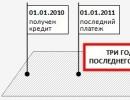Do I have to pay for major repairs without a contract? Useful video: do you need to pay for major home renovations?
According to current laws, people who own residential real estate that is part of apartment buildings must pay considerable sums from month to month for major repairs of the area that is considered common property. In particular, this money should be used to regularly repair the facade, roof, and entrances. In practice, such work has to wait for years. This encourages many to ignore contributions for major repairs. In this case, each new payment comes more than the previous one, since management companies charge special interest on late payments. They are called “penalties for major repairs”.
Disputes and laws
To this day, major renovations of areas that are in the common possession of all home owners cause a large number of disagreements. How legal is it to compulsorily collect money from all those who own property in a high-rise building? Is it right to charge additional amounts from those who are not ready or cannot pay on time for major repairs? And in general: over the past few years, many management companies in our country have accumulated decent millions, sent to the bank and bringing benefits in the form of interest, which each “manager” puts in her own pocket without benefit to the residents who paid the money.
But not paying what is due on time is fraught with danger. Penalties for major repairs are calculated using a special formula. From month to month, bills grow and grow until the numbers begin to frighten even those who are used to dealing with debts. In this situation, people are trying to figure out whether the penalty for major repairs was calculated correctly, whether the court can come to their aid, and also how to reduce the debt without parting with a huge amount of money. Unfortunately, the legislation has not yet been worked out thoroughly enough, so certain difficulties arise regularly.

Contributions: how it works
The law, according to which it is necessary to create a special account for major repairs of a house, collect money from the owners on a monthly basis, and then spend it on major events to maintain the building in good condition, was adopted back in 2012. It follows from the document that from this moment on the owners are responsible for maintaining the structure and making repairs as needed. The legislative act came into force on the first day of 2014. And immediately, out of all other bills for housing and communal services, major repairs stood out in large sums.
According to the law, such repairs are carried out according to the following scheme:
- every month the owners pay certain amounts, which are collected by the fund responsible for this;
- The fund uses the money raised to carry out repair work.
The organization of work is carried out through a regional tender, during which any organization with suitable capacity and qualifications expresses a desire to participate in the contract.
How to spend money?
The company that wins the auction draws up a major renovation project and, as soon as it is approved, implements all the specified work on communications inside the house and on the territory related to this house. In this way, it is possible to install, for example, devices for metering the consumption of resources in a building. The fund withdraws money from the amount paid by the owners and settles with the contractor.

Contributions for major repairs paid by the owners of territories in a residential building are accumulated in the fund of the registered region where the building is being built. There are regional funds that work with contractors, organize tenders and create lists of organizations capable of completing the work. They have the right to operate only in their region.
How to pay?
Money collected for major repairs is paid through the operator of a particular region. Payment deadlines are regulated by regulations adopted by the territorial formation. The documentation also tells you exactly how to pay. In this case, the money is paid “month by month.” This means that in January bills for January will arrive, in February - for February, and so on.
In some regions, authorities have established that the payment deadline is until the 10th of the next month. This scheme is familiar to everyone, since it has long been customary to pay other housing and communal services bills using it. As a result, bills received, for example, for January, the owner must pay off no later than February 10. If this does not happen, a debt for major repairs arises.
What to pay and how much?
In order to pay money, which will then be used to repair the facade, roof, communications, you must first receive a receipt. It tells you how much money should be given away. In short, the system is similar to the one by which usual services are paid: water, gas, heat. You can pay either through special cash desks or through a bank or post office. The easiest option is to use your personal account in the online version of your bank. However, you need to carefully enter the details so that the payment goes where it is needed.

How large a figure the owner will see on the receipt is determined by the following factors:
- area of housing owned;
- regional tariff;
- presence of debt.
In many regions the tariff is about five rubles per square meter. The region's Federal Financial Markets Service can provide accurate information at any time. Specialists are obliged to clearly explain to everyone what the base rate is, what factors play a role, how you can pay and by what time it will have to be done, as well as the answer to questions about why this money is paid and what benefit it will bring to the owner.
When should you pay less?
- reduced tariff;
- compensation for part of what was paid;
- exemption from payments.
The local municipality is in charge of establishing the categories of residents who are entitled to it. Officials also determine how much relief will be for certain individuals.
What if you don't pay?
If a citizen who owns property in a multi-storey building is unwilling or unable to pay for major repairs on time, then he is issued a fine. This issue is regulated by Article 155 of the Housing Code in force in our country. It follows from it that a person who is late in payments must repay his debt in full, and in addition to it, also pay penalties for major repairs. How large the interest is is established by the 14th part of this article. Penalty and interest are different concepts, which in this particular case are often equated to each other, since we are talking about charges applied to a person in debt.
But from the official point of view, there are no penalties for major repairs at all, as well as penalties associated with late payments. The FCR calls this money reserves, taken to replenish the fund's reserves. That is, this additional money, as well as the contributions required by law, goes into the “common pot” to be used for major repairs. Such complexity of terminologies leads to the fact that many are convinced that penalties for major repairs are illegal and there is no need to pay them. In practice, the complexity of using official terms excludes the possibility of avoiding debt settlement: you will still have to pay, no matter what you call it, because additional charges are called “penalties” only among the people and are fully consistent with the law.
How much penalty should I pay?
How large can the penalties for major repairs be? This depends on a number of factors. Arrears occur when the owner:
- did not pay the entire amount of bills;
- paid the amount in full, but not on time;
- paid nothing on the bills for major repairs.
Any of the options involves a violation of the order established by law and leads to the collection of additional money. The fine is calculated using the formula:
P = Wk x StRef: 300
Ned is the amount that the fund did not receive from the owner. StRef is the refinancing rate introduced by the Central Bank of the country. There is a possibility that the rate has changed during the period for which calculations are being made. In this case, take the indicator valid on the date of issue of the current account.
What to do?
If a certain owner has received a notice and it follows from an official document that he has violated the procedure for paying contributions for major repairs, which leads to the collection of additional amounts, he can calculate for himself how much he will have to pay. In order not to miss anything, it is recommended to collect as much information as possible and check whether you really broke the law or whether the paper arrived in error.
It all starts with finding out the standards that are fair for a particular region. So, contact the regional fund to find out what the deadlines for payment are. Next, check on what specific day you redeemed the receipts received. This information can be found in payment documents: bank statement, receipt or check.

If it is determined that payment occurred after the due date, you need to calculate how large the time difference is in days. In this case, the first is not the day on which the amount must be paid, but the next one. For example, if the region has a payment deadline of the 10th of the next month, then the first day of delay is the 11th. The last day is the one when the money was actually sent to the recipient, that is, to the fund or management company.
If the entire amount was paid late, then it is all considered arrears and takes the place of the “Wed” variable in the above formula. If part of the amount on the account was sent to the recipient before the required day, and part - after, then the second amount is used as arrears, that is, sent with a delay.
The late payment notice contains a date. On the Central Bank website, check how high the refinancing rate was at that moment. So, all the information is available, so the numbers can be substituted into the previously specified formula. The calculation results must be compared with the figure in the notification. If there is a discrepancy, you must contact the regional fund and demand an explanation.
To pay or not to pay?
Major repairs, contributions for them, penalties associated with late payment of amounts are the topic of a huge number of conflicts between individuals and management companies. Obviously, many people turn to the courts in search of justice, so in just three years a decent amount of practice has already accumulated.

The main reasons for not paying receipts:
- The Tax Code does not contain a requirement to pay contributions for capital repairs.
- The Tax Code makes no mention of penalties, late payments, or additional charges associated with non-payment of bills for major repairs.
- The country's laws make no mention of payment for outstanding utility bills.
Since management companies and funds collect money for major repairs just like that, but cannot provide either a certificate of completion or an estimate confirming that the repairs were carried out, people who do not want to pay on receipts refuse to contribute money.

And it's still unclear
Last year, deputies wrote an appeal to the country's Constitutional Court, where they demanded a clear explanation of the fact that fees for major repairs are justified, legal, and everyone is obliged to pay them. In April of the same year, the court confirmed the validity of collecting funds from the owners. Additionally, the supreme authority clarified that the owners are not obliged to donate money to special third-party funds; they can accumulate funds themselves and carry out repairs with them when it turns out to be necessary.
Residents of each apartment building are given a certain time period during which they must decide whether they will raise funds themselves or entrust this to a centralized organization responsible to the municipality. If the fund demands payment of money without first obtaining consent from the population, then it can go to court. The claim must come directly from the owners affected by such illegal practices. By court decision, residents can begin centralized collection of money among themselves without using the reserves of the regional fund. However, as it became clear from judicial practice in 2016-2017, it usually takes at least a year to exit the fund.
And what does it mean?
If we analyze the decision of the Constitutional Court, regulations, legal papers currently valid in the country, it becomes clear that contributions for major repairs must be paid without fail. This, in turn, means that collecting amounts in default is an absolutely legal process. If a willful defaulter has brought the situation to the point where he is taken to court on this issue, the owner will be found to be in the wrong and will be required to pay the full amount, including interest, as well as pay legal costs.
How can you pay less?
Since it is not possible to completely eliminate contributions for major repairs, another question arises: how can you save money? There are legal ways to reduce the amounts required from people to regional funds. We are talking about various benefits that apply in a particular region.
Regional laws precisely determine which categories of citizens can count on relaxations in the calculation of utility bills, including for major repairs. To find out who is eligible for concessions, you need to contact representatives of the local fund. As a rule, these categories of citizens are:
- disabled people;
- the poor;
- large families;
- raising disabled children;
- single parents;
- victims of man-made accidents.

Who else doesn't pay the full amount?
In some regions, special conditions have also been established for:
- teachers;
- military;
- workers involved in agriculture.
If the owner has the right to concessions, but does not receive them, he needs to contact the specialists of the regional fund. As a rule, you will have to have with you a document indicating that the person actually belongs to the number of beneficiaries.
Special cases
Very often, contributions for major repairs are not round sums, since much depends on the area of the home. But in practice, people try to pay money by rounding it up. For example: 376 rubles are credited, but a person pays 380, and does not even think about whether this is correct. As ordinary people often say: “Just think, it’s not a pity.” Does the fund have the right to take such amounts?
The situation is as follows. At a meeting of residents of an apartment building, the amount that they will pay monthly to the management company and then to the regional fund is established. In the case when such a meeting decided that, with a regional standard of 376 rubles, people in their home would pay 380 rubles, which means that the fund has the right to collect such payments. If this does not happen, then utility companies can take exactly as much as is stated in the average for the region.

Federal benefits
In 2016, the legislation regarding contributions for capital repairs underwent changes affecting the category of beneficiaries. If previously it was possible to obtain relaxations only from regional authorities, now they are also provided by federal ones and apply to all regions. So, you can count on special conditions:
- people who have confirmed disability of the first and second groups;
- families raising disabled people;
- owners who have crossed the 80-year mark may not pay anything at all;
- Owners aged 70 or older pay only half of the premiums.
Back in 2014, management companies of apartment buildings included a new service in utility bills. The appearance of the line “for major repairs” in receipts alarmed and upset many homeowners. However, in the same year, the first recommendations appeared, which described in detail ways to help apartment owners avoid paying for this service on completely legal grounds.
However, in the second part of the Housing Code of the Russian Federation it is written in black and white that the funds, which in case of emergency will be used for major repairs of an apartment building, must be kept either in an open account created for this purpose, or in the current account of the management company.
Then how can you not pay for major repairs according to the law? For what reasons do many residents and apartment owners refuse to adhere to the rules of the law? Let's take a closer look.
How legal is the management company’s demand to pay funds for major repairs?
This requirement is completely legal and is described in detail in the Housing Code. At the same time, it can be considered quite objective and useful, since many people have long been aware that the housing stock is, to put it mildly, in a terrible state. And all this can lead to accidents in the next few years. That is, by accepting the obligation to pay a certain amount for major repairs, the homeowner cares first of all about himself, and first of all about his own safety. Is this how it turns out in reality?
According to the law, absolutely all owners of residential premises located in apartment buildings are required to pay for the service. The only exceptions are low-income citizens who receive benefits and financial assistance from the state. In addition to them, war and labor veterans are completely exempt from paying for major repairs. And only certain categories of citizens receive a discount on the service.
For what reasons do apartment owners refuse to pay for major repairs of the house in which they live?
Let's consider the most popular reasons why home owners do not want to pay for major home renovations:
- The program aimed at improving the housing stock was adopted not so long ago, and besides, there are no specific deadlines for repairs, which means the money will go nowhere. That is why the owners perceive it as another way to force people to pay for something unknown.
- Residents must pay for the overhaul of the house, but their money may one day repair the attics, entrances and basements of the house, which will never become their property. In addition, people are alarmed by the fact that teams from private companies that carry out commercial activities are hired to carry out repair work.
- Many owners do not use the property that the management company offers to bring into proper condition. An example would be the lack of need to repair the elevator for residents of the first floor, since they simply do not use it.
Our lawyers know The answer to your question
or by phone:
What is a major overhaul? What are owners required to pay for?
Even if you regularly pay for the overhaul service, which is included in your receipt, and are not at all worried about whether or not you need to contribute funds to a special fund, then you may probably be interested in the list of work performed for your money. This list includes the following:
- Restoration of the building and its facade in accordance with modern trends.
- Basement renovation.
- Restoring the roof and maintaining the roof in good condition.
- Reconstruction of the foundation of the house if necessary.
- Restoration of old elevators or installation of new modern cabins.
- Updating sewerage, water supply, heating and other types of communications systems.
Based on the above list, it is quite logical that the responsibility for paying for major repairs lies with the homeowners. But the question immediately arises: do exactly the same requirements apply to new buildings that were put into operation no more than two years ago? It turns out that, according to the Housing Code of the Russian Federation, residents of such houses also need to regularly pay for major repairs with a future perspective. In most cases, it is these arguments that become the main reason why people living in new buildings refuse to pay fees for services that, in their opinion, are incomprehensible.
How can it be legal not to pay for major repairs of an apartment building?
Having considered all the important issues related to paying for major repairs of an apartment building, we will dwell in more detail on how to legally avoid paying for this service. There are several similar methods, but you won’t be able to do it completely without spending money. So:
In addition, you can, of course, not pay for the service at all by simply ignoring the receipt you receive. But such actions may result in sanctions from the management company.
What threatens those who do not pay for major repairs of apartment buildings?
By law, residential property owners have the right to pay not every line on the receipt. However, in reality this is not at all easy to do. If you stop paying for the overhaul service, then the management company may apply penalties, namely:
- Send out additional receipts and notifications about the need to pay the debt.
- Charge interest on the amount of the debt.
- Resolve the issue through the court, where the apartment owner will have to explain in detail the reason for refusing to pay for the overhaul service, providing strong evidence in his favor. If you fail to properly justify the refusal, the amount of your debt will likely increase by the amount of legal fees.
As a result, I would like to note that every owner of a home located in an apartment building has two options for legally refusing to pay for major repairs. The first is to ignore receipts for payment for major repairs, which will not be known when. And the second is to use legal ways to evade a significant portion of payments for the service. Naturally, the second option is preferable, since it does not entail the imposition of sanctions from the management company and will not lead to court.
The debate about whether it is necessary to pay for major repairs has been going on for more than one year. Since 2014, when Russians were “pleased” with the appearance of a new payment in their mailboxes, the discussion has not subsided: who has the legal right not to pay receipts and what troubles the debt to the Capital Repair Fund threatens.
Who should pay for major repairs?
Fines for unpaid bills for major repairs are imposed on citizens in accordance with Art. 155 Housing Code of the Russian FederationMonthly payments for major repairs hit your wallet. However, refusing payments can be even more expensive. That's what the utility companies say.
And they are right. Payment for major repairs is an obligation for homeowners, which is clearly stated in Russian legislation in the relevant articles in the Federal Law and the Housing Code of the Russian Federation.
The only exceptions, and this is also approved by law, are:
- owners of apartments recognized as unsafe and subject to demolition in the foreseeable future;
- some categories of citizens classified as socially vulnerable;
- 80-year-old single citizens;
- residents of apartments subject to seizure by the state (for example, in buildings located along the path of the future construction of an overpass or other transport infrastructure facility).
Sometimes owners of dilapidated apartments may not only not pay the bills issued to them, but also demand the return of money already paid in payments. This is possible in cases where payments were made after the home was declared uninhabitable.
In addition, social housing tenants do not have to pay the fee, since they are not the full owners of the living space. But the owners of apartments purchased with a mortgage will definitely not be able to avoid paying bills. Despite the fact that the square meters are pledged to the bank, the buyer is still considered the owner, albeit with limited rights. Which means he has to pay.
 WWII veterans are exempt from paying for major repairs
WWII veterans are exempt from paying for major repairs The following have the right to pay half the amount in payments:
- disabled people of the first and second groups;
- single pensioners over 70 years of age;
- 70-year-old citizens living in an apartment with already retired relatives;
- disabled children;
- parents of disabled children.
Citizens recognized as low-income can count on benefits when paying payments; members of large and single-parent families.
A special topic is the happy owners of square meters in new buildings. The law says nothing about their obligation to make monthly payments. This is explained by the fact that all major repairs of buildings less than 5 years old are, in fact, the correction of errors and shortcomings made during construction, and therefore the payment for them is borne by construction companies.
Once an apartment building reaches five years of age, fees for major repairs become mandatory.
By the way, it was the wording of No. 271-FZ that at one time gave reason to question the need for payments to the Fund. The fact is that the Federal Law did not clearly define the difference between major and current repairs. And this was necessary to do, because the column “current repairs” was already present in incoming housing and communal services payments, which means there was a reason to say that the user was being offered to pay for the same service twice.
 According to the Housing Code of the Russian Federation, if mandatory payments for major repairs are not paid, debt collection through the court is possible
According to the Housing Code of the Russian Federation, if mandatory payments for major repairs are not paid, debt collection through the court is possible In addition, a couple of years ago, the topic of citizens’ lack of signed agreements with the Capital Repair Fund, according to which payments could be made, was actively discussed. Against this background, the topic of “first payment” is still actively discussed. Allegedly, it, committed by the owner of the living space, becomes a kind of signal about the existence of contractual relations between the citizen and the Overhaul Fund and obliges further payment of all payments.
There is logic in this: the validity of any agreement begins from the moment it is signed by the parties, while termination entails the end of the obligations. Against this background, one still has to look for the answer to the question in Federal Law No. 271 and Art. 169 of the Housing Code.
We should not forget that multi-apartment buildings actually come into a state that requires immediate repairs: replacing roofs, gas pipes, risers with hot and cold water, painting shabby facades. At the same time, it is not possible to raise the required amount at once to renovate your home everywhere. Whereas the monthly allocation of not so large sums for repairs is still within the residents’ ability. The address of contributions may be different. Apartment owners can choose one of two options at their general meeting:
- make payments to the regional operator;
- transfer contributions to a specially opened account for your home.
The latter payment method will allow the building to be renovated exactly what the residents want (and not what is determined by the Foundation). In addition, control over the use of collected funds will be much more transparent.
Now many people understand that there is no escape from paying monthly bills. This is also confirmed by regulatory legal acts: it is mandatory to pay a fee for major repairs provided that the citizen does not have benefits or other valid reasons.






